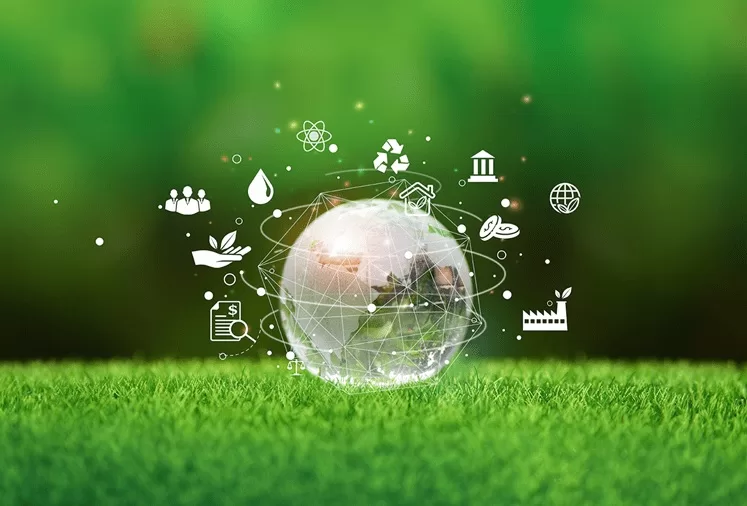Indian real estate sector accounts for 17% of total emissions, giving rise to the imperative need to adopt sustainable solutions that will restore the ecosystem.
Over the past few years, the world has seen rapid commercialisation. Capitalism and industrialisation have advanced the world and ensured constant progress, quite literally. But somewhere along the way, we began to cross a line that was causing irreparable damage to the ecosystem. Only recently, did the decision makers and governments realise that it is time to slowdown and reverse this damage caused if we are to leave a decent tomorrow for the coming generations.
On conducting analysis and gathering statistics, it was found that the global real estate sector generates over 40% of the carbon emissions, construction activity and building operations being the contributing factors. And the Indian real estate sector accounts for 17% of total emissions, giving rise to the imperative need to adopt sustainable solutions that will restore the ecosystem.
Efforts being made to preserve the ecosystem
Policymakers and industry experts are coming together to devise viable solutions that will drive sustainability, a key one being the adoption of sustainable building materials derived from recycled or renewable resources. Pioneering technologies and new-age design that are energy-efficient will allow us to reduce our carbon footprint while augmenting aesthetics and functionality of real estate assets.
Finally, effective waste management systems like greywater recycling, composting, recycling debris and rubble into concrete products, recycling wood into engineered wood, and segregating waste at site can be considered. Also, better initial planning to optimize resources goes a long way in reducing generation of waste. Actively embracing these solutions will lower operational costs and make the construction process a sustainable one.
There are a number of initiatives and policies put in place that are focused on making the real estate sector a more sustainable one. Some of them are:
Homebuyers keen on sustainable homes
With increased awareness, homebuyers are showcasing interest in sustainable properties as opposed to traditional constructions. Coercion from environmental activists, concern for the next generation, and introspection have caused homebuyers to re-evaluate parameters while investing in real estate. They now seek residences that are comfortable and sustainable.
Owing to this demand, developers are focused on expanding their green development projects. India’s green building market reached a value of $21 billion in 2021, growing by 5.1% compared to 2020. From 2017 to 2021, the market demonstrated a historical compound annual growth rate of 7.2%.
Today, homebuyers are primarily looking at the following factors:
Buyers value homes with excellent indoor air quality, including high-quality air filtration systems, low-VOC paints/finishes, and natural ventilation.
Sustainable housing projects in India
According to figure 1, in 2019, Indian states collectively developed over 48 million square meters of LEED-certified space. Maharashtra led with 373 projects, followed by Karnataka with around 300 and Haryana with approximately 140. Maharashtra’s projects accounted for over 10 million square meters.
Figure 1: Number of LEED certified green building projects in India in 20191
Figure 2: Green roof market size worldwide in 2022, by country (in million U.S. dollars)2
According to figure 3, in the fiscal year 2019, more than 500 construction projects were registered with the Green Rating for Integrated Habitat Assessment (GRIHA) council in India, covering over 13 million square feet.
Figure 3: Green footprint of GRIHA construct3
Conclusion
A new sustainable era is in the process of coming to life. We are compelled to be mindful in our actions and have the common sense of knowing that we don’t own the planet; we have a responsibility to care for it so that the coming generations can enjoy its abundance. At individual, community and industry level, we must support policymakers in making and executing prudent decisions that will conserve the ecosystem.
About the Author:
Jatin Shah, Chief Technical Officer – Project Management | India & MD – Technical Due Diligence
Jatin is a real estate professional with over 20 years of experience. With domain expertise of design, procurement, cost and overall development he has collaborated and lead teams to provide value-add suggestions and inputs to Developer’s. Team under Jatin has completed technical due diligence of 300+ projects across asset classes such as commercial, land, retail, residential, warehousing and logistics, and hotels.
Source: colliers.com


